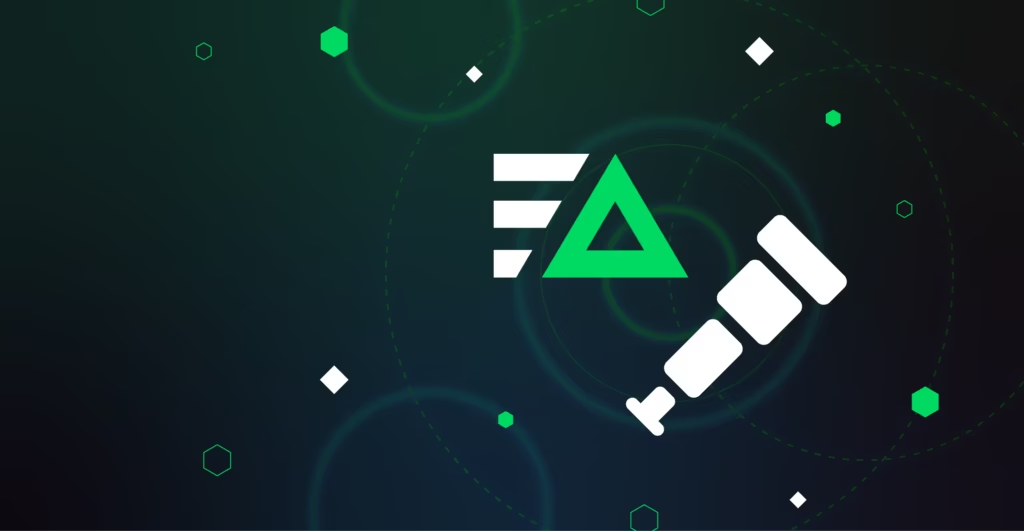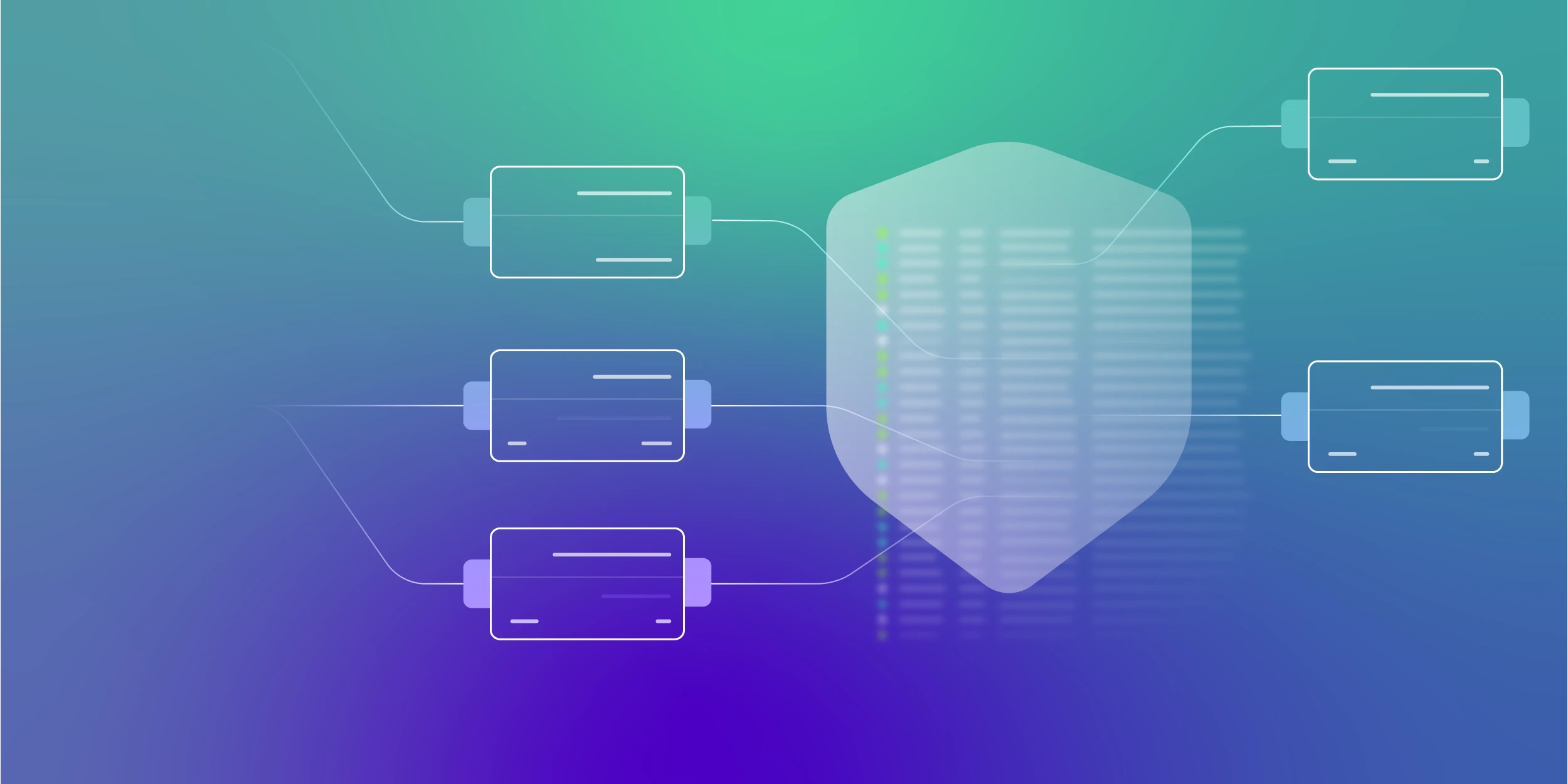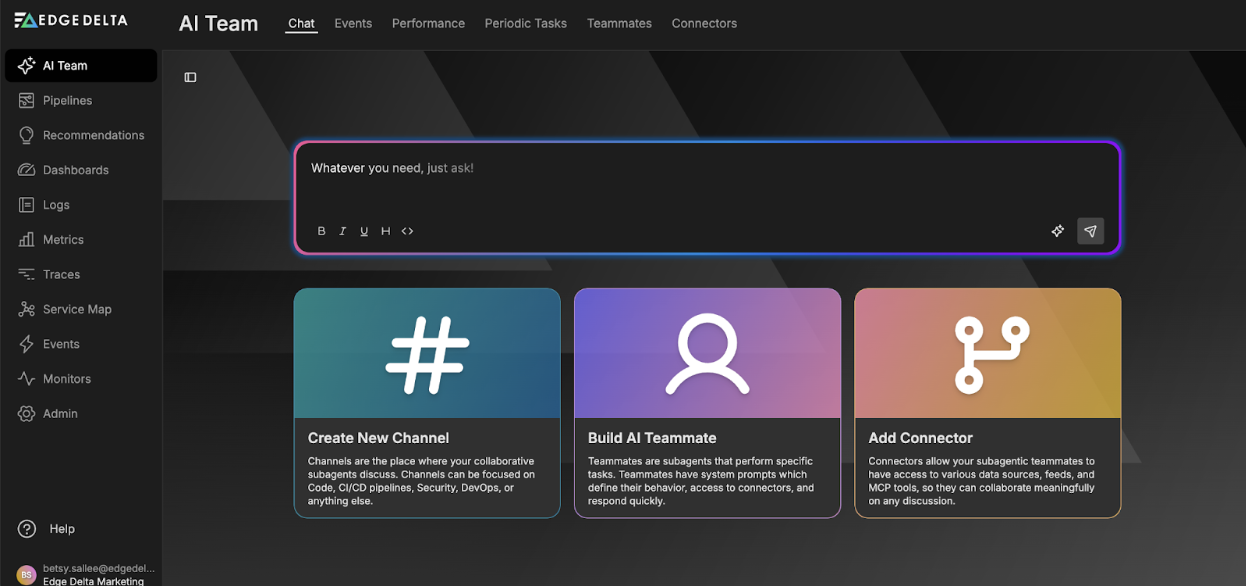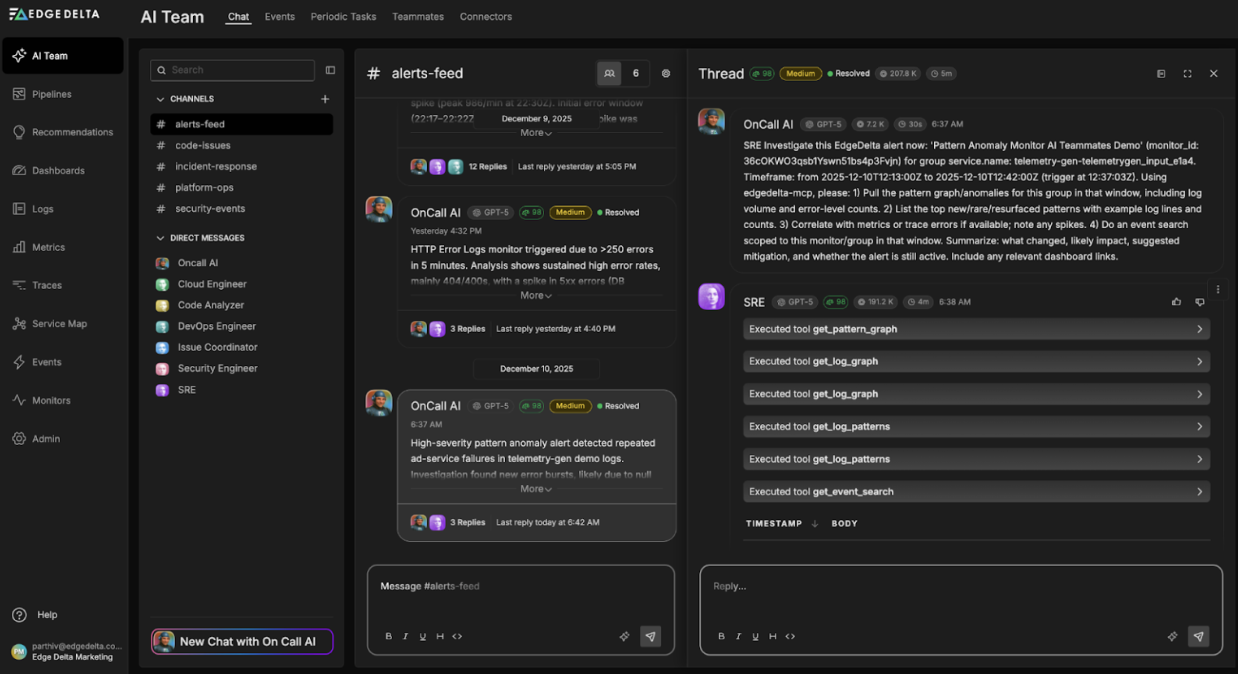Infrastructure and operations teams need interoperability to eliminate siloed visibility and vendor lock. We’ve been big believers in interoperable analytics tooling since our initial launch of Observability Pipelines. Late last year, we pushed this vision forward by adopting the OpenTelemetry schema as our single standard for analyzing log data.
Today, we’re taking another big step forward with out-of-the-box support for the OpenTelemetry Protocol (OTLP). This update lets you ingest logs and metrics from OTLP-configured sources via our Visual Pipelines interface. From there, you’ll receive OTLP structured data with no additional configuration.
Want Faster, Safer, More Actionable Root Cause Analysis?
With Edge Delta’s out-of-the-box AI agent for SRE, teams get clearer context on the alerts that matter and more confidence in the overall health and performance of their apps.
Learn MoreIn essence, this update helps you more easily adopt OpenTelemetry across your organization:
- You can analyze and query OTLP data directly within Edge Delta
- You can collect, pre-process, and route OTLP formatted logs to a third-party provider via Observability Pipelines
What is OTLP?
OTLP is a vendor-agnostic telemetry protocol. It was developed by the Cloud Native Computing Foundation (CNCF) as part of the OpenTelemetry project. OTLP defines the format and delivery semantics for sending metrics, events, logs, and traces (MELT data) over gRPC or HTTP/JSON. At launch, Edge Delta will support gRPC with plans to expand to HTTP/JSON.
OTLP standardizes how systems emit telemetry data – regardless of where you analyze that data – replacing proprietary vendor protocols. When you use the OpenTelemetry project’s OTLP Exporter, your applications emit OTel-compatible data without information loss.
The Benefits of OTLP
The primary driver for adopting OTLP (and OpenTelemetry in general) is to break free from vendor lock-in. Open standards enable you to migrate from one observability tool to another without sacrificing historical data. Embracing OTLP upstream enables a simpler migration whenever your team is ready.
That’s in part because instrumenting your applications to emit telemetry can be complex and time-consuming. OTLP gives you a vendor-agnostic protocol, meaning you don’t need to re-instrument your applications when you adopt new tooling.
Additionally, leveraging OTLP makes it easier to integrate different observability tools since OTLP provides a standard way to access data within the payload universally. So, if you have other tools that interact with your log data, they can use the same structure present in Edge Delta Observability Pipelines.
In other words, when you send telemetry data through Observability Pipelines to another provider, there’s no need to restructure the data in flight. This enables you to more easily build an open observability architecture.
Get started with OTLP today
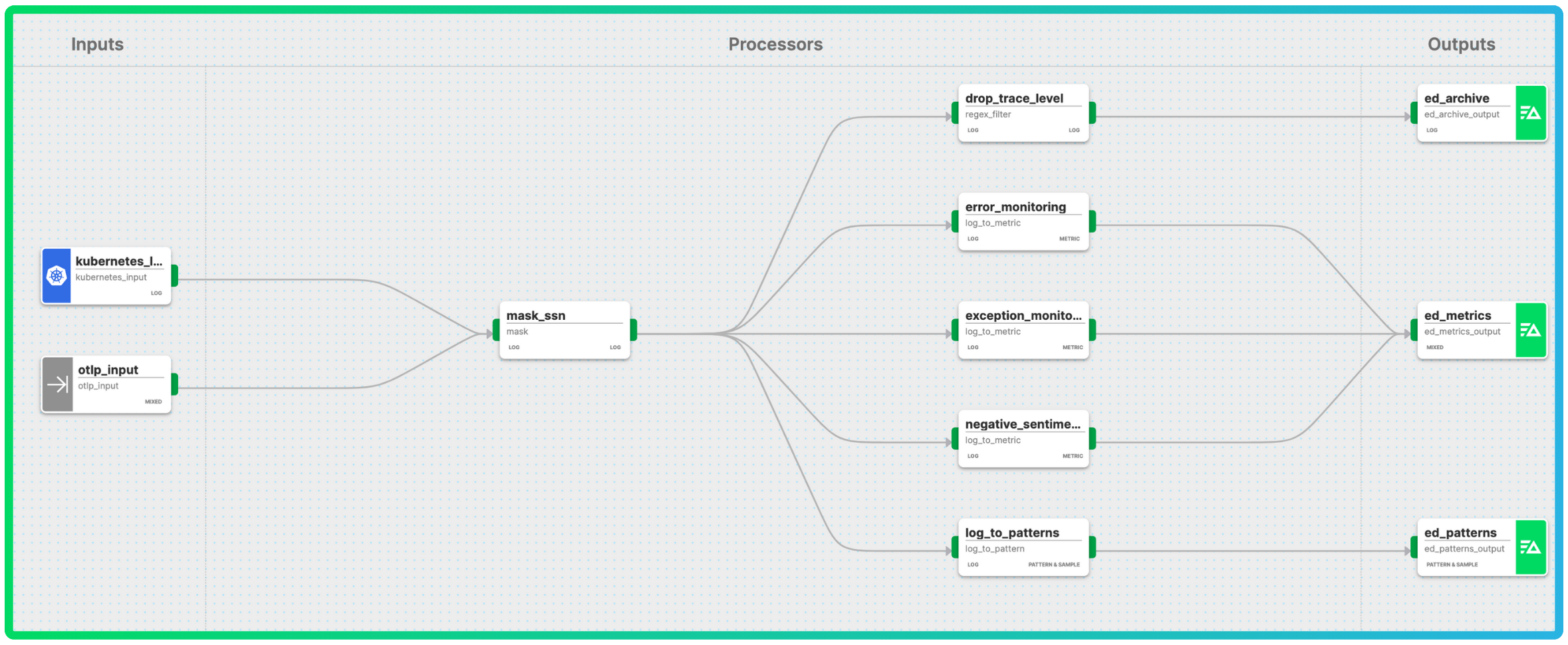
To collect logs and metrics from your OTLP-configured sources, simply add the OTLP Input node to your Observability Pipeline and input the port number.
Moving forward, Edge Delta will continue prioritizing OpenTelemetry in our product. If you’d like to make Edge Delta part of your OpenTelemetry framework, I encourage you to book a call with one of our observability experts here.

